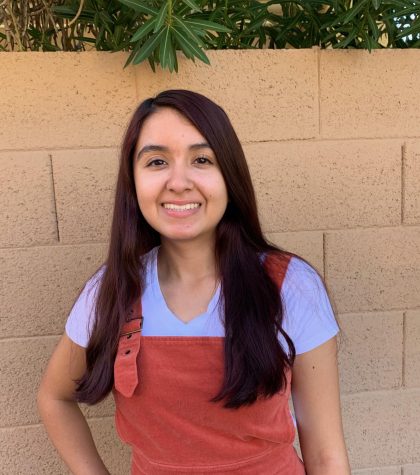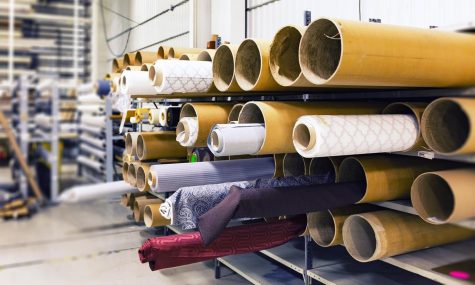Why Our School Needs a Student Exchange Program
Everybody wants to travel the world. Whether it’s on your bucket list to visit every continent, or visit all 195 countries, or try all the different kinds of food from every corner of the world, the curiosity is always there. We as humans want to see things for ourselves and experience all we can. Some people start travelling in college, when their university has a semester or year-long study abroad program. However, you can get a head start and even be an exchange student while still in high school.
Being an exchange student in high school opens the doors to so many new areas – students can be exposed to different cultures, see different parts of the world, learn or master a new language, have more job opportunities, and be better prepared for university life. In just the two years that I’ve attended Mountain Ridge, I’ve known of a couple of foreign exchange students that are from places like Italy, Norway, or Japan. However, I haven’t heard of anybody from Ridge that has transferred to another country to study while still in high school, and this is most likely because we don’t have an exchange program to help us through the process.
Without an exchange program that is facilitated by the school, anybody who wants to study for a semester or year somewhere else will have to go through a third-party program to get it done. This makes it more difficult to find a program you really like, get information quickly and first-hand, and transfer your credits, which is nearly impossible without a program that is run by the school. It is also more difficult to find a community of students who are going on exchange, whereas if the school managed their own program, you would most likely have at least a few people you know who are doing it as well.
The benefits of a high school exchange program greatly outweigh the negatives. For starters, going on a student exchange at such a young age broadly expands your point of view. For example, if you transferred to Finland, you would live with a Finnish host family, eat Finnish food, go to a Finnish school, and communicate and make memories with people in the Finnish language. It’s like you’re living as a Finnish person for the time being. So not only do you get to have a fun experience somewhere else, but the exposure to a different way of life can broaden your views on different things.
Ludovica Vargiu is an exchange student here at Ridge who is from Olbia, Italy. For her, experiencing an American way of life was one of the biggest reasons she decided to study abroad this year.
“I wanted to improve my english, and I’ve always been in love with America. I wanted to see how it is living a teenage life here,” Vargiu states.
Mastering English always seems to be one of the main reasons people choose to study abroad in the States. This is not only because of the cultural and social benefits of being bilingual, but also because it can greatly improve your chances of finding a job, and you may even be paid more for what you do. So for Vargiu, it was not a difficult choice to study abroad, since it would help her later in life.
Studying abroad while only 17 has also prepared Vargiu for college, as she states, “I’ve never been by myself or on my own without my parents, and you have to manage your own money and everything. It’s kind of like college.”
Not only will this prepare her learn to live on her own while in university, but it may even help with her applications. Of course they will look at her grades and transcripts, and they will see that she immersed herself in another language to be proficient, but they will see that she has an interest in other cultures, and that she is open-minded to different ways of life. Colleges like to see personality in students, and going on exchange can show just that.
Vargiu also mentioned that studying abroad for European students, or at least Italian ones, was very common, and that she had many close friends who had done the same thing. I was especially surprised when she mentioned that her and her friends did not use a program that was run by their school to go on an exchange. She said that she had used a third party program, and didn’t think the experience would have been much different if the school did have its own program. However, Italian high schools are much different than American ones. In America, we have four years of high school, and need to take the full class and pass our exams to get the credit for the class. In Italy, their high school is five years, and Vargiu will get the credit for the year as long as she passes a test at the end.
Our school system doesn’t work that way, and it is nearly impossible for us to get the credit for the time we spent studying in a different country. It’s easier for American students to graduate a year early and spend what would have been our senior year somewhere else, or for us to take a gap year before college where we attend a high school somewhere else. So, it would be ideal for us to have an exchange program that’s run by our school, so we don’t have to speed up our education or put it on hold, as both can be stressful to students.
Since using a third party program for American students is more complicated than it is for an Italian student like Vargiu, nearly nobody studies abroad while still in high school. In Italy, maybe half of your friends have gone on exchange or have seriously considered it. Here in the United States, you probably don’t know a single person who has thought about going on exchange in high school. However if the school provided a program to work for us, I’m sure that many of us would take advantage of it.
It would be a learning experience, with being exposed to different cultures, people, and learning how to live away from our parents, which Vargiu has considered the worst part. But that doesn’t stop her from describing her exchange year as “the best experience ever.” With all of the benefits of studying abroad in high school, it’s clear that it’s extremely beneficial to us and that the pros outweigh the cons. So why doesn’t our school provide something for us to better prepare ourselves for life and our futures?

She is a sophomore in her second year of newspaper. She loves dogs and writing. She enjoys newspaper because of the opportunity it gives her to express her opinions and write about the things...







